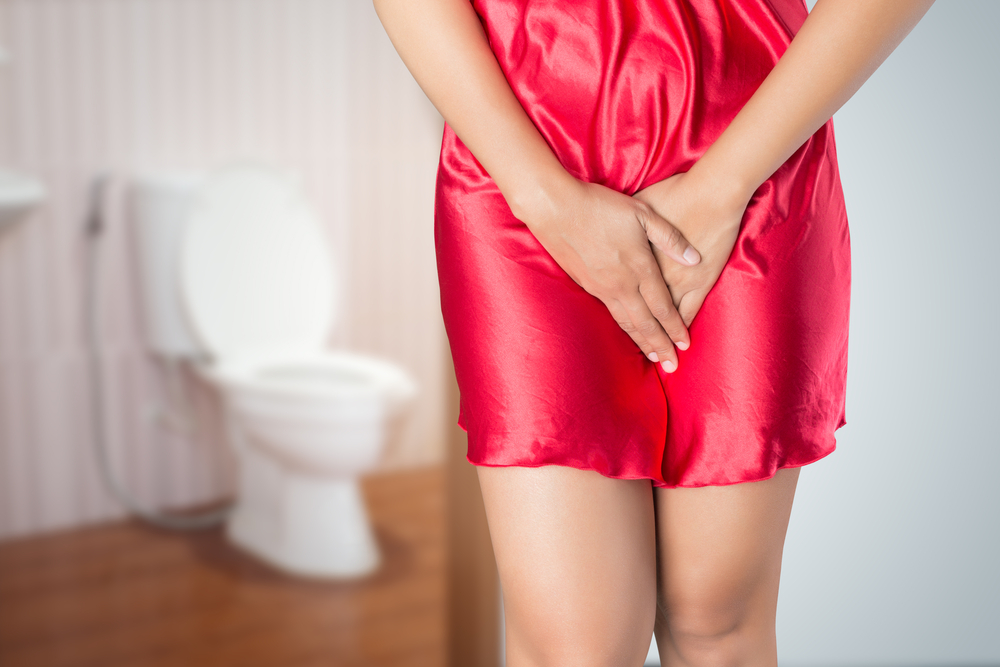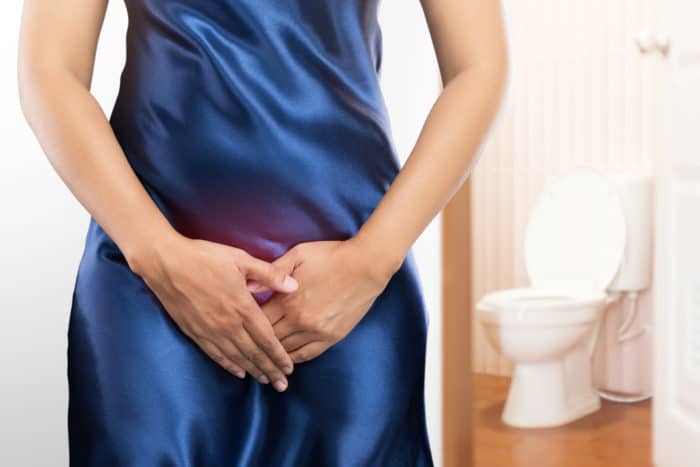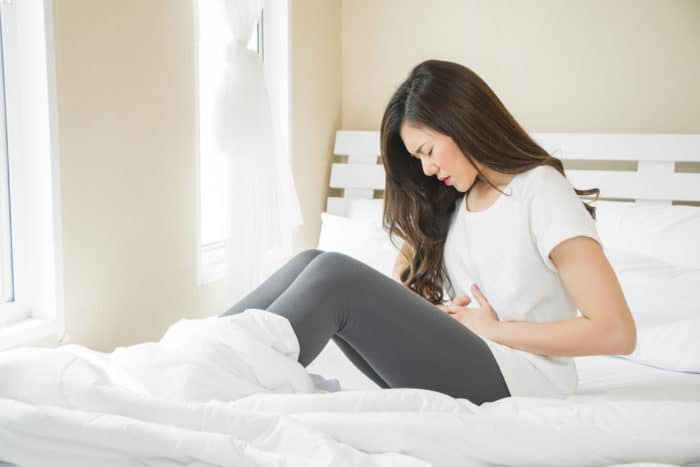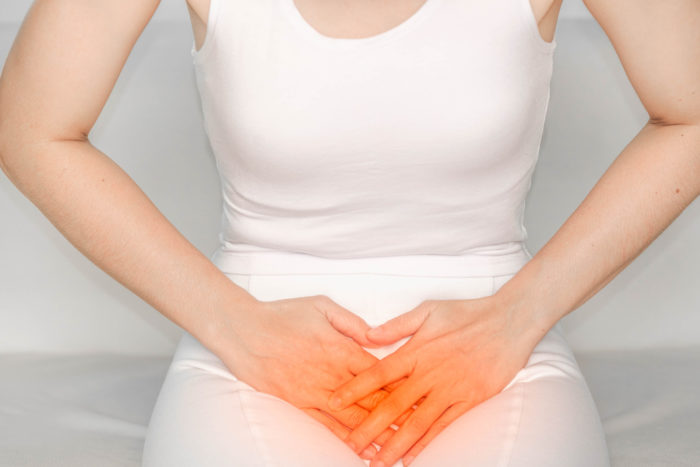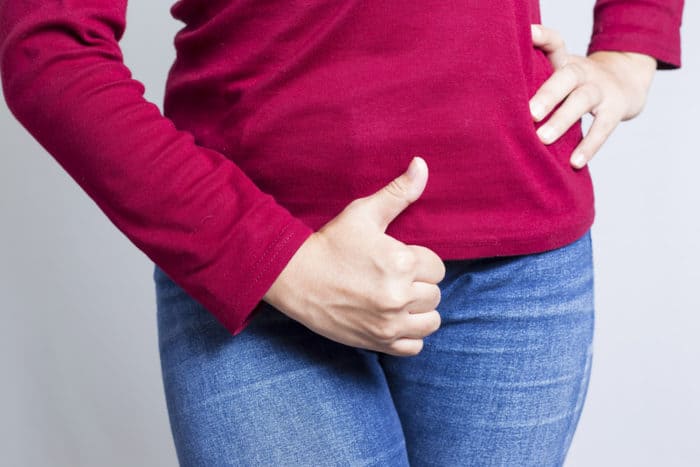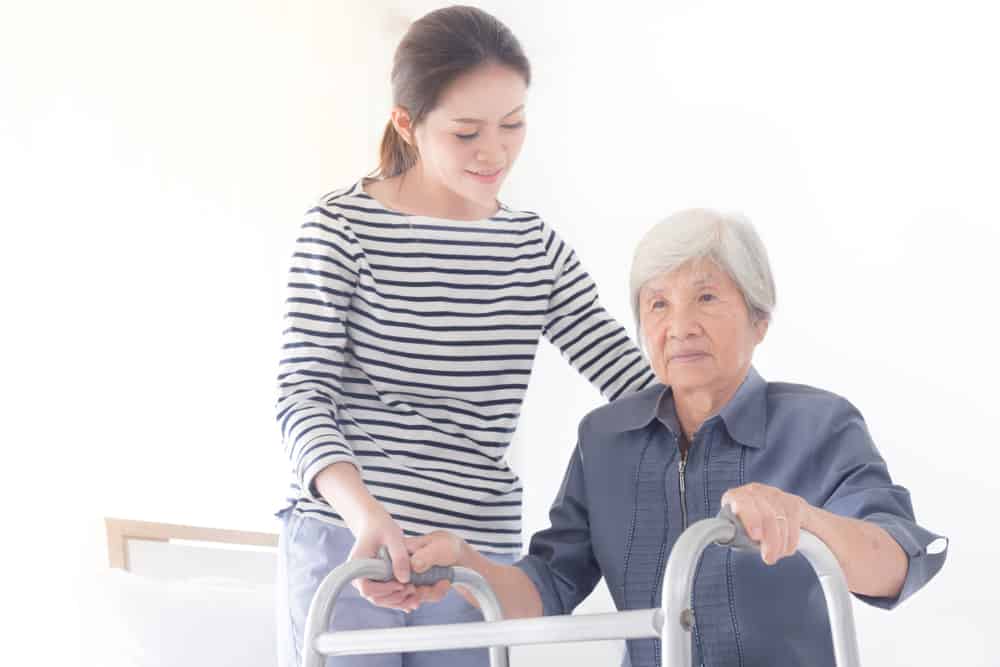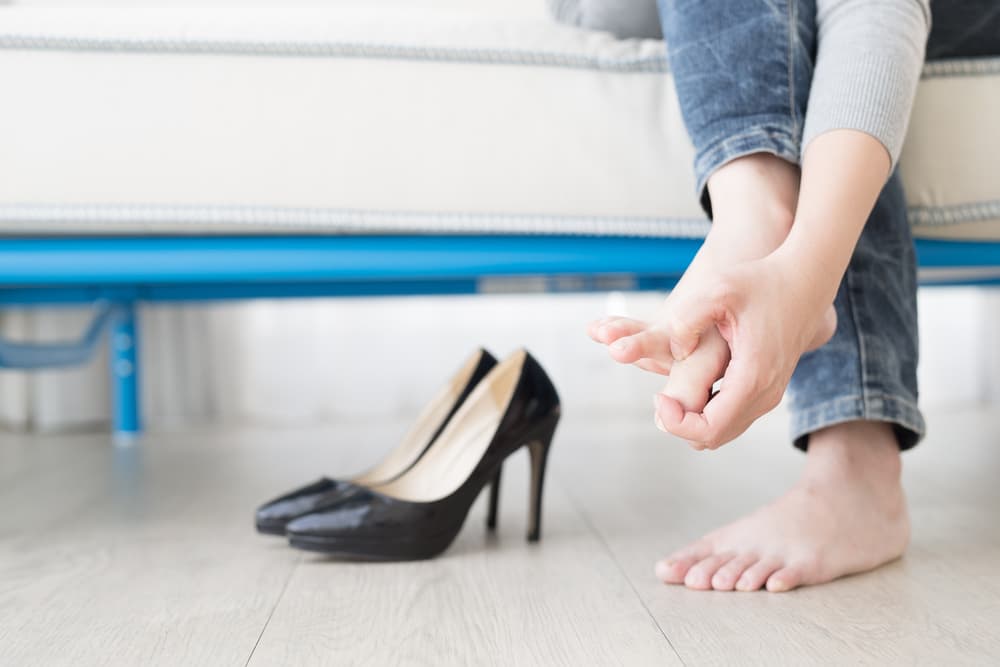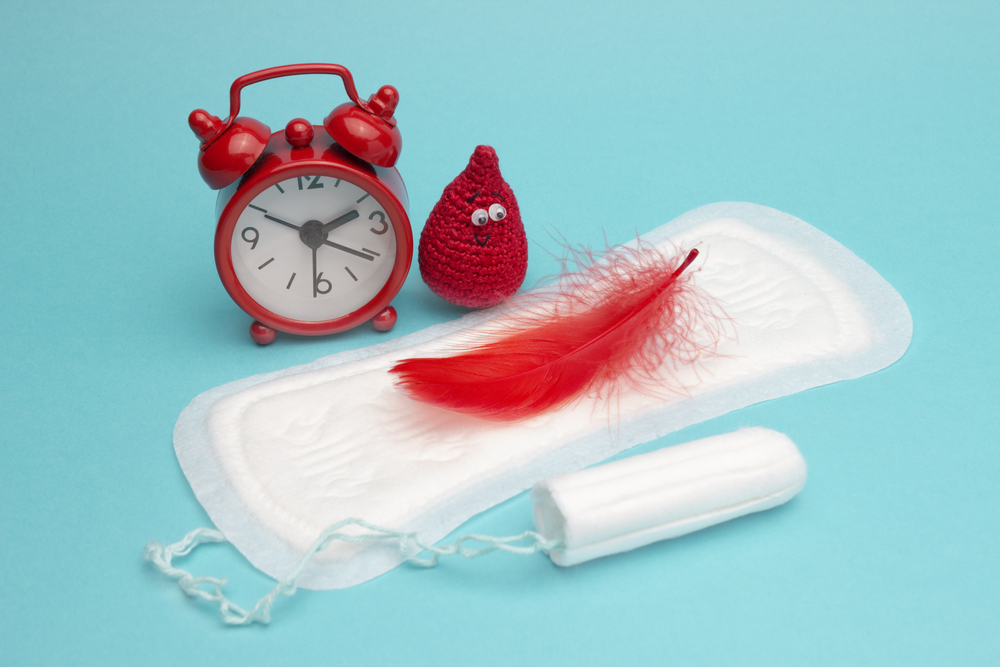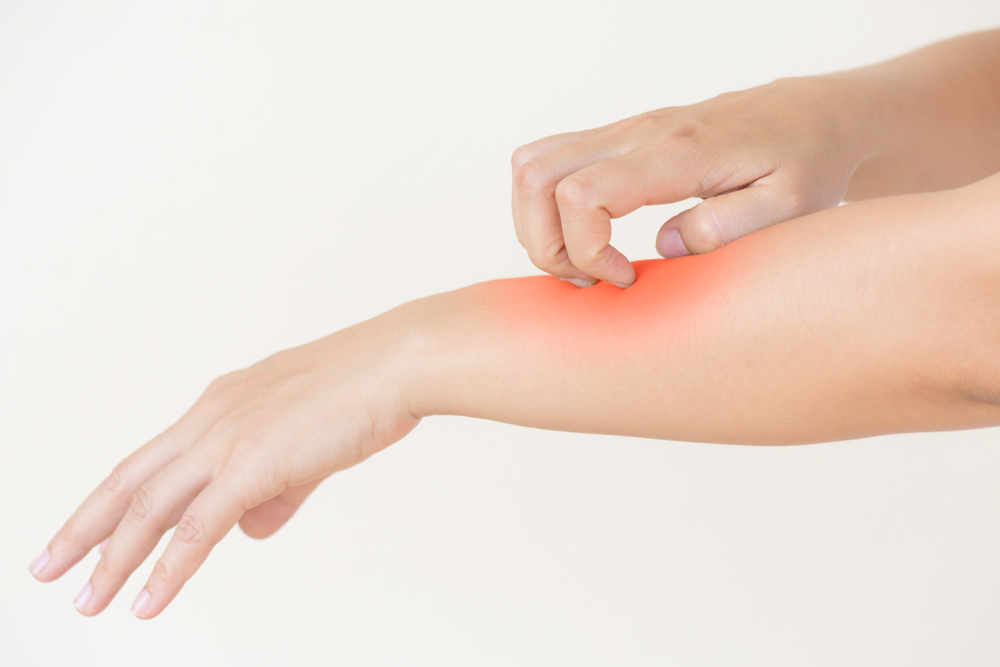Contents:
- What is Anyang?
- How common is anyangangan?
- Symptoms and characteristics of anyang-anyangan
- When should I see a doctor?
- The cause of anyang-anyangan
- Who is at risk of experiencing anyangangan?
- How do doctors diagnose anyangangan?
- Anyang-anyangan medicine
- How to overcome anyang-anyangan at home?
- How to prevent anyang-anyangan
- What can I do to prevent this condition?
There are various conditions that can interfere with the process of urinary discharge from your bladder. Conditions that often make it uncomfortable are anyang-anyangan, especially when urinating. Although it can affect anyone, but anyang-womanangan in women is more common than in men.
For more details, let's look further at the causes of anyang-anyangan, anyang-anyangan drugs, and how to prevent and overcome anyang-anyangan.
What is Anyang?
Anyang-anyangan is a condition that is often associated with discomfort when urinating. Or in medical terms, this condition can be called the name dysuria. The frequency of urination generally will be more frequent than usual, even reaching twice in one hour.
Discomfort caused during urination can vary in each person. Some are in the form of pain, pain, to burning or burning in the area of your genitals.
How common is anyangangan?
Dysuria can occur to anyone regardless of age and sex. However, most cases of anyang-anyangan in women are more common than in men, reported on the Emedicine Health page.
Yes, the risk of someone suffering from this condition will increase in women because women have a urethra (the place where urine is released) that tends to be shorter so it is easy to get an infection. If dysuria occurs in men, it is usually more common in older men.
Symptoms and characteristics of anyang-anyangan
Anyang-anyangan is actually a symptom that indicates an illness. Therefore, the signs experienced by each person are not always the same. In other words, the symptoms that arise depend on the causes of any underlying causes.
If there is an infection from bacteria that attacks your vital organs, it will indeed cause symptoms such as pain and pain when urinating. This condition will usually lead to urinary tract infection (UTI).
But in some cases, symptoms that arise may not be in the form of pain or pain. That means, this condition is caused by something else. Signs and symptoms that must be considered are as follows:
- The desire to urinate increases
- Difficulty in controlling the bladder
- Discomfort when urinating
- The urine is cloudy, dark, or tends to be thicker
- Urine sometimes accompanied by blood
- Sometimes accompanied by fever
There may still be signs and symptoms not mentioned above. If you have concerns about a particular symptom, consult your doctor.
When should I see a doctor?
If you have similar signs or symptoms mentioned above or have other questions, you should immediately consult with your doctor. Especially if these conditions affect daily activities. A consultation with a doctor will help find the best solution for your health condition.
The cause of anyang-anyangan
There are various kinds of things that can be the cause of anyangangan. As explained earlier, the cause of anyang-anyangan or disuria can be due to a bacterial infection that leads to urinary tract infections.
The other most common type of infection as a cause of anyang is bladder infection (cystitis); kidney infection (pyelonephritis); prostate infection (prostatitis); and inflammation or swelling of the urethra (urethritis). Besides that, sexually transmitted diseases (venereal diseases) can also be characterized by the onset of dysuria when urinating.
Various other things that can also be causes of anyang, such as:
- A stone appears in the bladder. Forms of hard mineral lumps in the bladder. It is usually formed because it does not urinate completely so that the urine clots and forms mineral crystals.
- Trauma. Occurs due to injury or irritation after installation of a urine catheter or sexual contact.
- Anatomic obstruction. For example because of enlarged prostate or urinary narrowing (urethral stricture).
- Normal tissue growth in the area of the intimate organ. That makes pain when urine touches abnormal tissue.
- There is irritation in the sex organs. The risk of anyang-anyangan in women will be even greater if you often do vaginal douching, which is washing the vagina by spraying a special solution into the vaginal canal, using special tools that have been equipped with bags and hoses.
- Hormonal factor. The effects of post-menopause and menopause that make the vagina feel dry.
- Neurological condition. When it is difficult to empty the bladder.
- Cancer. Attack the urethra, bladder, prostate, vagina, vulva, or penis.
- Use of soap, perfume, or other intimate organ care products.
- Inflammation of the vagina. Caused by bacteria, fungi, parasites, or other viruses, which will cause itching, burning, and infection.
Who is at risk of experiencing anyangangan?
Some things that can increase your risk of suffering from dysuria are:
- Gender, anyangangan in women is more common than in men. Especially if it is caused by a urinary tract infection, the passage of bacteria towards the shorter bladder makes it easier for women to experience discomfort or pain when urinating.
- Having a urinary tract infection.
- Have done a urine catheter installation. It generally occurs in people who have difficulty urinating so they have to use a catheter to urinate. For example in hospital patients, patients with uncontrolled urinary function neuropathy, and patients with paralysis.
- Has stones that settle in the bladder.
- Having prostate enlargement, in men.
- Having urinary tract constriction.
- Suffers irritation in the area of the intimate organ.
- Wrong direction when cleaning the urethra. When cleaning starts from the anus towards the urethra, the bacteria in the anus can easily move to the urethra.
How do doctors diagnose anyangangan?
Most cases of dysuria will take place in a short time, so there is no need for a special examination. However, if the pain during urination continues for a long time, it even gets worse. We recommend that you do not delay to see a doctor immediately and consult further about your health condition.
At first the doctor will review all your medical history, complete with symptoms experienced and personal habits regarding sex organs. Information about the frequency of urination and sexual history that you do should also be conveyed.
Based on the results of the information, it is only possible to determine what examination is most appropriate for diagnosing your complaint. Usually, a doctor's examination involves examining the abdomen or pelvis by ultrasonography (USG); examination of the external genitalia or examination of the genitals that appear from the outside; to gynecological examination for women.
That is why, to diagnose dysuria depends on the main trigger. If the doctor suspects the cause of anyang-anyangan is due to bladder infection, further examination is needed by performing a urine test.
The resulting urine samples will be further analyzed in the laboratory to detect the presence of bacteria in your urinary tract organs. Another case if you are suspected of having vaginitis, it is necessary to do a swab test from tissue samples in infected sex organs to be tested in the laboratory.
On the other hand, if you have dysuria and have had unprotected sexual intercourse with multiple partners, your doctor will usually decide to take a special test to find out if you suffer from a type of sexually transmitted disease - such as gonorrhea, chlamydia, trichomoniasis, syphilis and HIV .
Anyang-anyangan medicine
Because there are various things that are the cause of anyang-anyangan, the selection of anyang-anyangan drugs must also be adjusted to the trigger. For cases of urinary tract infections, kidney infections, bladder infections, urethritis, and bacterial vaginitis, the right one is to take antibiotics in accordance with the doctor's prescription.
While for cases of vaginitis triggered by fungal growth, the selected Anyang-Anyangan drug is more specialized to reduce the elimination of fungal development in the vagina.
Usually fungal infections will be treated with antifungal drugs, either in the form of oral medications, suppositories, or creams that are applied directly to the vagina. Oral drugs that can be chosen as anyangang any drug because of vaginitis, including clotrimazole, miconazole, nystatin, and diconazole.
Vaginal creams, vaginal suppositories can be obtained without having to use a doctor's prescription, but for oral medicine you need a prescription from a doctor first.
In addition, analgesics can also be given, such as phenazopyridine, as a choice of any other medicine that serves to reduce pain or relieve pain in the area of your urinary tract. This drug will change the color of your urine to reddish orange. Antioxidants for drinking drugs such as acetaminophen and ibuprofen can also be used as anyangangangan drugs.
It is important to always adhere to the instructions for using anyang-anyangan drugs.
How to overcome anyang-anyangan at home?
Just like the choice of anyang-anyangan drugs that can be consumed, any way to overcome anyang-anyangan cannot be arbitrary. Alias depend on what causes you experience. Here are some things you can do to help overcome anyang-anyangan:
1. Consult a urologist
Anyang-anyangan can be caused by many things, such as UTI, urinary tract tumors, or urinary tract stones. Therefore it is necessary to consult further with a urologist to find out the main cause of the occurrence of anyang-anyangan.
If the pain during urination (dysuria) that you feel is triggered due to the presence of cancer cells in the urinary tract, then referral and consultation to a urology specialist is also the right choice to overcome anyang-anyangan. There you will be guided to undergo a series of tests and further treatment.
The treatment for each cancer case will also be different, depending on the type of cancer, the location of the cancer, and the severity of the cancer. Generally the treatment you will get includes surgery, chemotherapy, and radiotherapy.
2. Keep the intimate organ area clean
After urinating, apply to always clean the urethra from front to back. The goal, to reduce the transfer of bacteria from the anus (back) to the urethra (front). Avoid douching or cleaning the vagina by spraying liquid into the vagina.
Although things like this are more aimed at overcoming anyang-anyang for women, it is equally important to be applied by men as a way to overcome anyang-anyangan.
3. Soak in warm water
Dysuria can indeed cause discomfort, pain, and pain when urinating. Soaking in warm water is believed to help reduce discomfort in the area of your vital organs.
4. Get enough rest
In some cases, dysuria can be accompanied by symptoms of fever depending on the underlying cause. For that, you need to get enough sleep and rest until the fever and pain subside.
5. Empty the bladder
Avoid holding back the urge to urinate, especially for a long time. It's best to follow the body's natural desire to urinate and empty your bladder completely. This method can eventually help overcome anyang-anyangan in women and men who are quite disturbing.
6. Eat yogurt regularly
If you feel uncomfortable when you urinate due to a fungal infection in the area of intimate organs, try to overcome it by eating yogurt containing yeast regularly. The reason, yogurt can help stop the development of fungal infections while preventing relapse.
Yogurt is also equipped with a good source of calcium, so it is safe to support the development of good bacteria in your vagina while reducing fungal infections that can indirectly help overcome anyang-anyangan in women.
6. Adhere to recommendations from your doctor
It is also important to routinely check yourself into a doctor to monitor the progress of your body's health as a whole and overcome anyangang you experience. Do not forget to always obey all doctor's instructions, by not taking medication or taking drugs without permission and advice from a doctor.
How to prevent anyang-anyangan
What can I do to prevent this condition?
For those of you who have never experienced uncomfortable conditions when urinating, and before having to "get stuck" to overcome anyang-anyangan that you suffer. There are several important things that must be considered in order to prevent it. Especially if you are a woman and want to prevent the appearance of anything in women.
In essence, you are required to be more diligent and painstaking in maintaining the area of the intimate organ. Whether it's by always urinating before and after waking up; after sexual intercourse; wash the urethra from front to back; ensure that the area of the intimate organ is always dry and not moist; changing pads regularly; to wear underwear with cotton base material and not tight.
There is no harm in avoiding the use of special feminine soaps or cleansers to prevent anyangangan in women. If you want to be more specific in preventing dysuria or pain when urinating which is triggered by bladder infections and kidney infections, you are required to drink lots of water to help clear the urinary tract.

